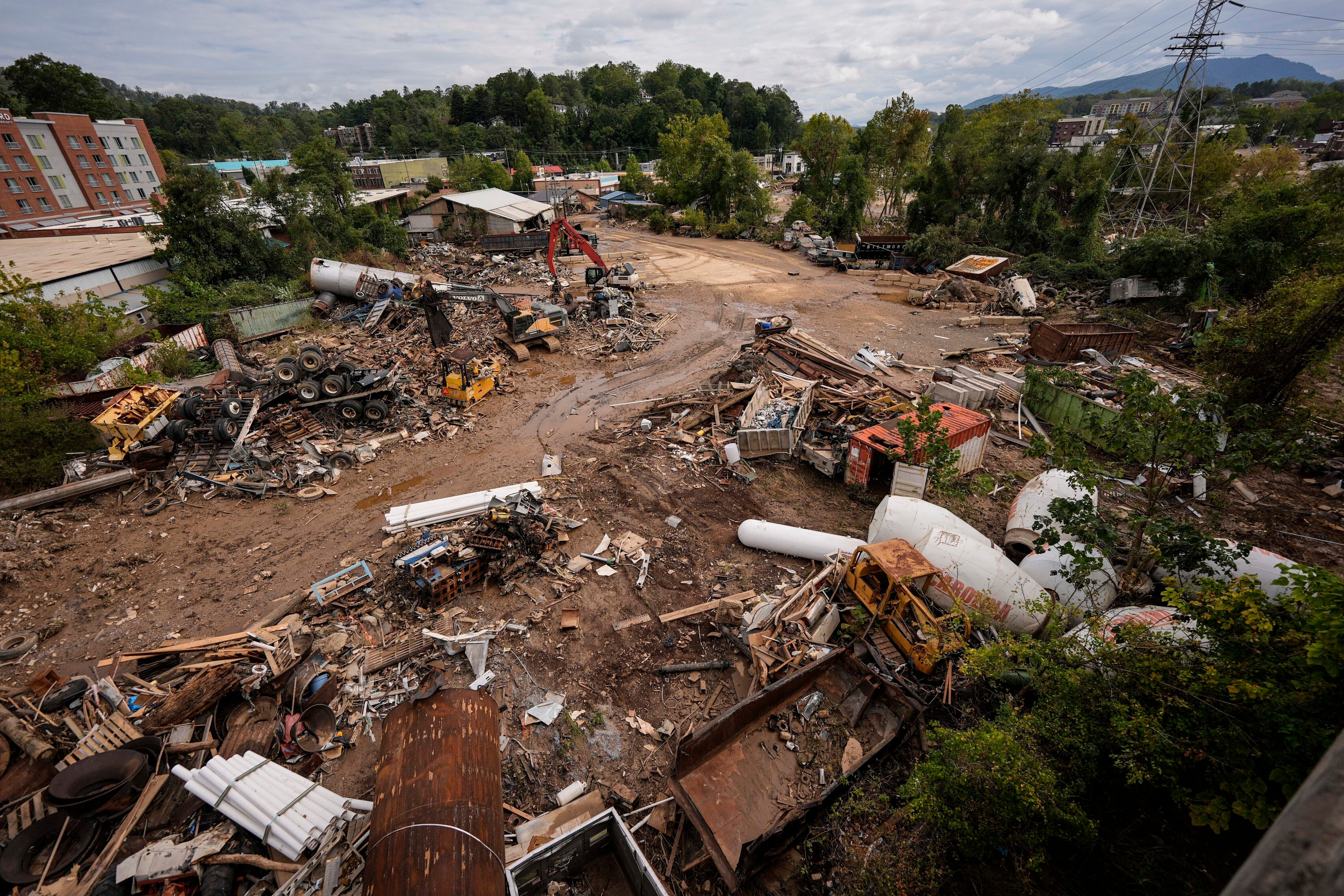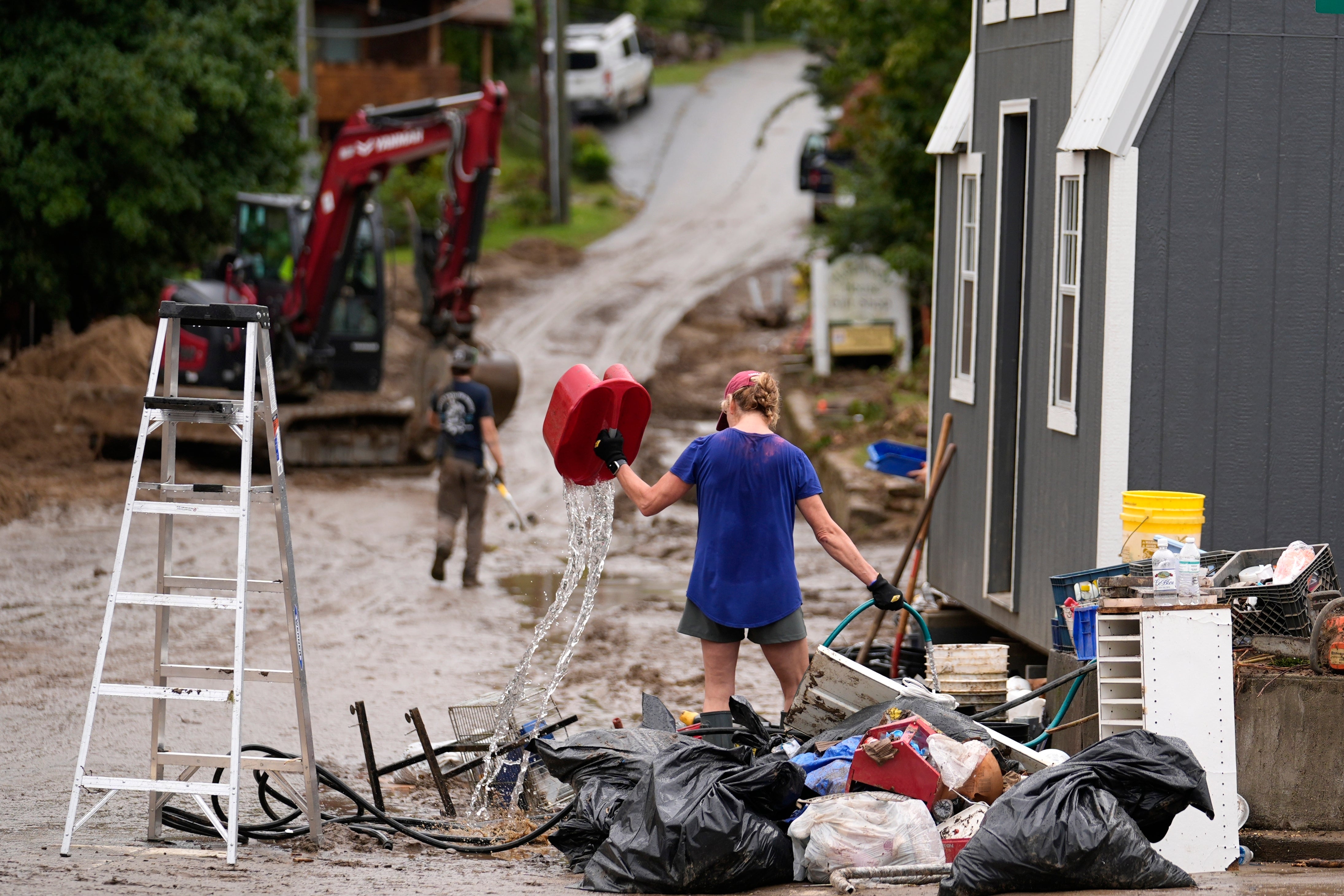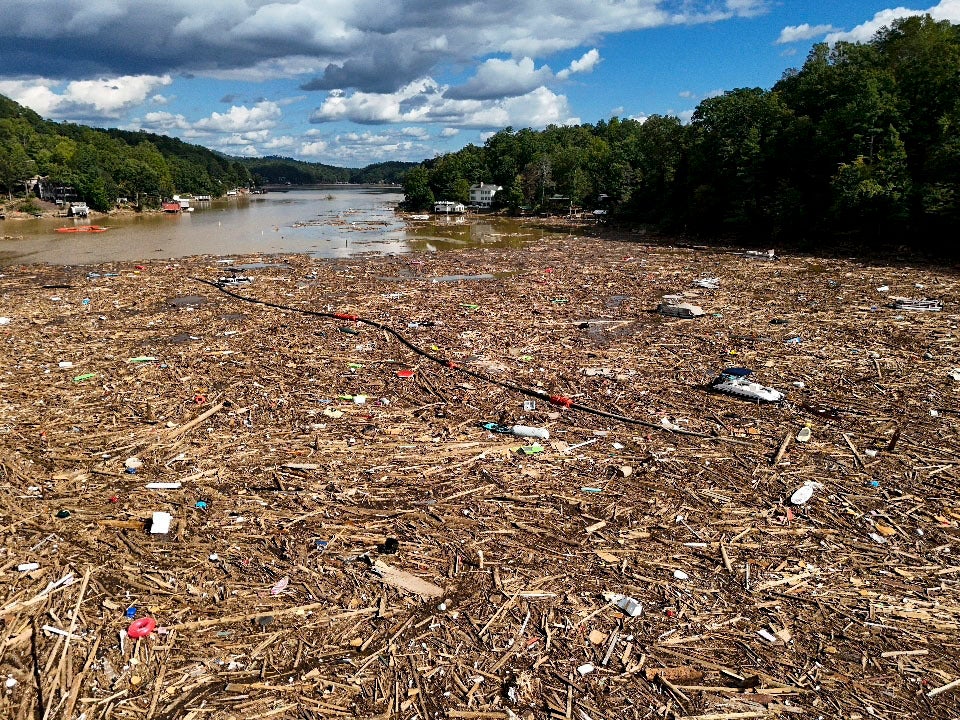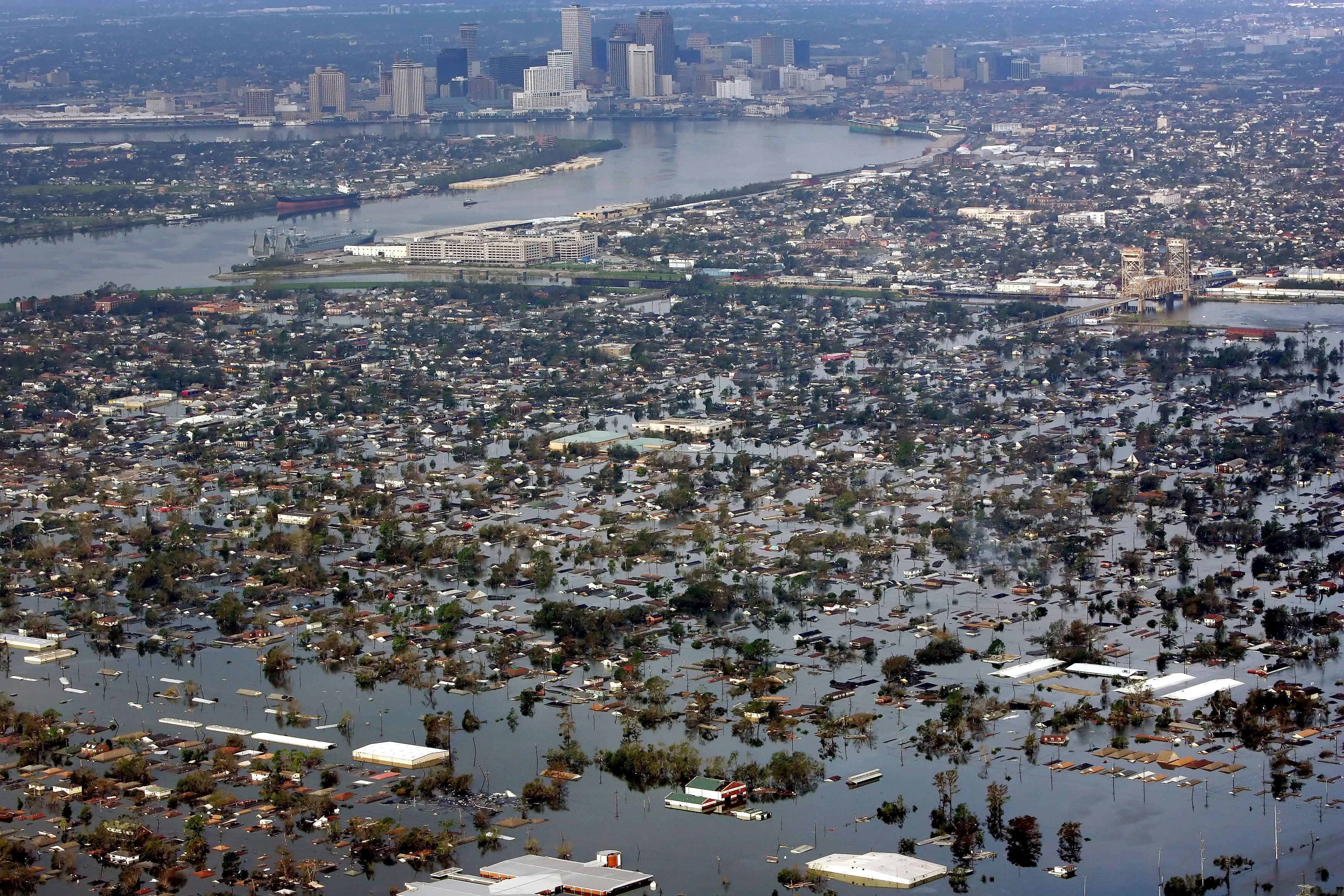Hurricane Helene is deadliest storm since Katrina as fatalities reach 182
The majority of deaths were reported in North Carolina
Hurricane Helene is now the deadliest storm since Katrina, with 182 fatalities confirmed Wednesday across six states in the southeast.
The majority of deaths were reported in North Carolina, which saw devastating flooding from swollen rivers, debris and landslides, along with South Carolina, Georgia, Florida, Tennessee, and Virginia.
More deaths are expected to be reported in the coming days in North Carolina. South Carolina, where power was still out for 449,000 people, saw 39 deaths.
“The current data that we have, is that it looks like there could be as many as 600 lost lives,” Homeland Security Advisor Liz Sherwood-Randall warned on Monday. “But, we don’t have any confirmation of that. We know there are 600 who are either lost or unaccounted for.”
She cautioned that the numbers “vary widely” and there’s “a lot of reporting that doesn’t add up about the numbers.”

Joe Biden traveled to Raleigh, North Carolina on Wednesday to meet with first responders and others affected by Helene. The president had waited to travel there until it was determined his presence would not to disrupt rescue efforts, according to officials.
Biden praised the Democratic governor of North Carolina, Roy Cooper, and the Republican governor of South Carolina, Henry McMaster, for their responses to the storm, saying in the wake of disasters “we put politics aside.” ”No one can deny the impact of the climate crisis anymore,” Biden said, adding, “storms are getting stronger and stronger.”
The devastation was especially bad in the Blue Ridge Mountains, where at least 57 people died in and around Asheville, North Carolina, a tourism haven known for its art galleries, breweries and outdoor activities. “Communities were wiped off the map,” Cooper, said at a news conference on Tuesday.
South Carolina Governor Henry McMaster announced that the number of confirmed deaths from the storm in his state rose to 36 on Tuesday afternoon.

Among the dead were Marcia and Jerry Savage, 74 and 78 respectively, who were found embracing one another in bed after being killed by a fallen tree that crushed their home. Their grandson John Savage, 22, who found them, told the Associated Press that it was likely his grandfather had rolled over to protect his wife right before their deaths.
Dozens more South Carolinians died in similar circimstances after trees fell on homes or cars. The dead include two South Carolina firefighters killed when a tree fell on their truck.
Elsewhere, Tennessee state authorities said on Wednesday they are investigating the company that owns a plastics factory where 11 workers were swept away by flooding, after the Impact Plastics factory in Erwin, a small community in rural Tennessee, kept working.
Several asserted that they weren’t allowed to leave in time to avoid the storm’s impact. It wasn’t until water flooded into the parking lot and the power went out that the plant shut down and sent workers home. Of the 11 that were swept away, only five were rescued. Two of them are confirmed dead.
Thousands of federal personnel have been deployed to respond to the destruction left by the storm and hundreds of people are presumed missing across all six states.

A Facebook group with more than 477,000 members included posts from people looking for family members. Some also provided updates saying their loved ones had been found.
Helene made landfall last Thursday in Florida’s Big Bend as a Category 4 storm before it shifted up the east coast. The Federal Emergency Management Agency (FEMA) noted that a 15ft storm surge had hit Florida’s Taylor county – with winds of 140 mph – and that areas of western North Carolina recorded 29 inches of rain when the storm stalled over the region.
Helene is the second deadliest hurricane to hit the mainland United States since Hurricane Katrina made landfall in Louisiana’s Plaquemines Parish on August 29, 2005. The Category 5 storm killed nearly 1,400 people.

In 2022, Hurricane Ian was responisble for 156 deaths across Florida, North Carolina, and Virginia.
A consortium of scientists confirmed this week that the human-caused climate crisis had played a role in making Helene a much stronger and wetter storm.
A report from ClimaMeter, which analyzes extreme weather events, found that Helene’s rainfall was up to 20 percent heavier, and winds up to 7 per cent stronger.
The consortium noted that elevated ocean temperatures in the Gulf of Mexico — something climate scientists have been warning about for years — likely contributed to Helene’s power.

Speaking to CBS’s Face The Nation, she said that rising temperatures in the Gulf were causing conditions that caused “significant infrastructure damage” that had affected a multi-state area.
“This storm took a while to develop, but once it did it intensified very rapidly – and that’s because of the warm waters in the Gulf that’s creating more storms that are reaching this major category level,” she said, adding that the conditions were creating greater amounts of storm surge in the coastal areas and increased rainfall as the storms moved north.
“In the past, damage from hurricanes was primarily wind damage, but now we’re seeing so much more water damage and that is a result of the warm waters which is a result of climate change,” she said.
Join our commenting forum
Join thought-provoking conversations, follow other Independent readers and see their replies
Comments
Bookmark popover
Removed from bookmarks